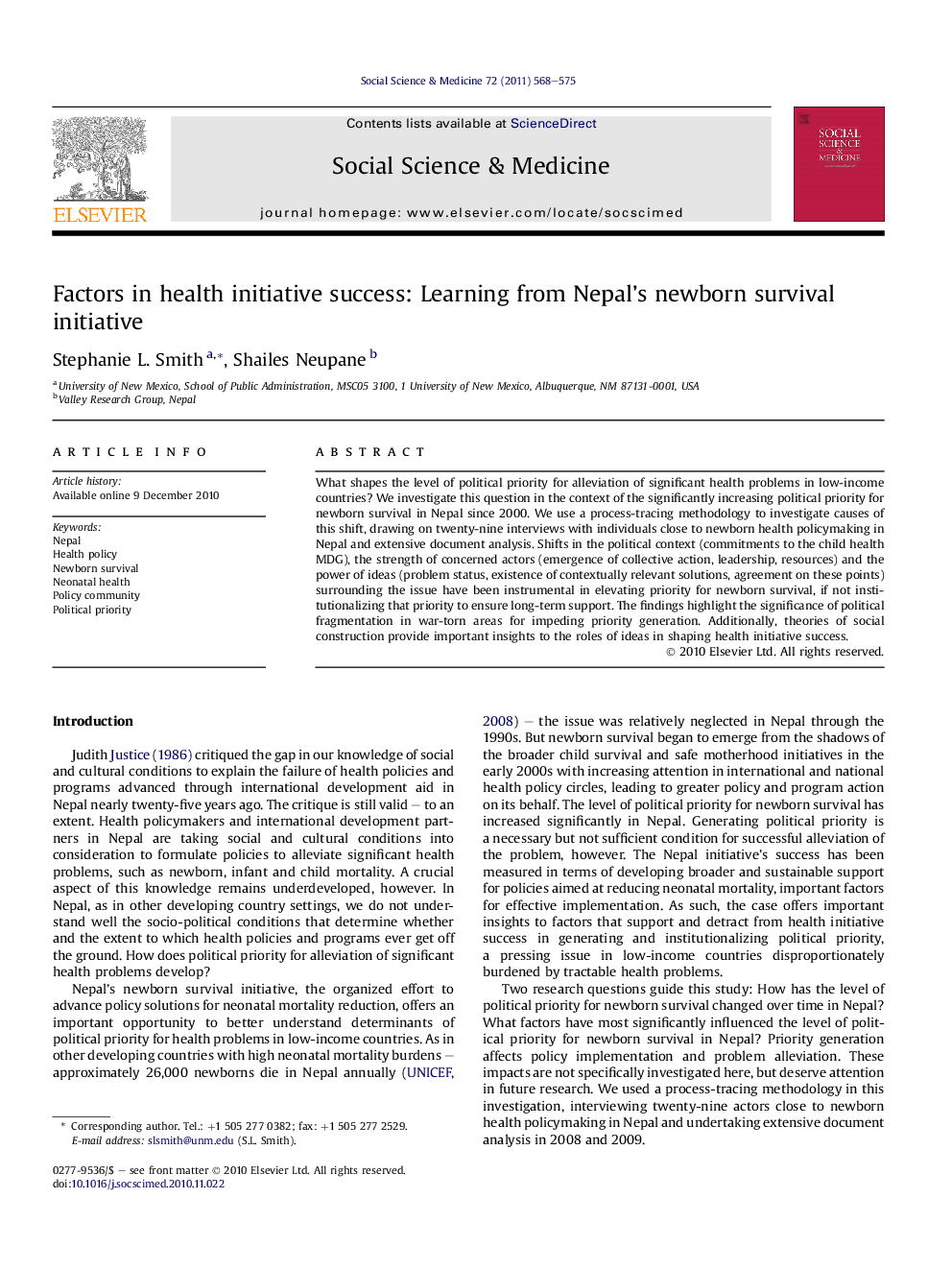| Article ID | Journal | Published Year | Pages | File Type |
|---|---|---|---|---|
| 952885 | Social Science & Medicine | 2011 | 8 Pages |
What shapes the level of political priority for alleviation of significant health problems in low-income countries? We investigate this question in the context of the significantly increasing political priority for newborn survival in Nepal since 2000. We use a process-tracing methodology to investigate causes of this shift, drawing on twenty-nine interviews with individuals close to newborn health policymaking in Nepal and extensive document analysis. Shifts in the political context (commitments to the child health MDG), the strength of concerned actors (emergence of collective action, leadership, resources) and the power of ideas (problem status, existence of contextually relevant solutions, agreement on these points) surrounding the issue have been instrumental in elevating priority for newborn survival, if not institutionalizing that priority to ensure long-term support. The findings highlight the significance of political fragmentation in war-torn areas for impeding priority generation. Additionally, theories of social construction provide important insights to the roles of ideas in shaping health initiative success.
Research highlights►Advances knowledge surrounding determinants of political priority for health initiatives in low-income countries. ►Draws upon social constructionist theory to understand why health initiatives are more or less successful. ►Highlights significance of political fragmentation in war-torn areas for impeding political priority generation and impact.
